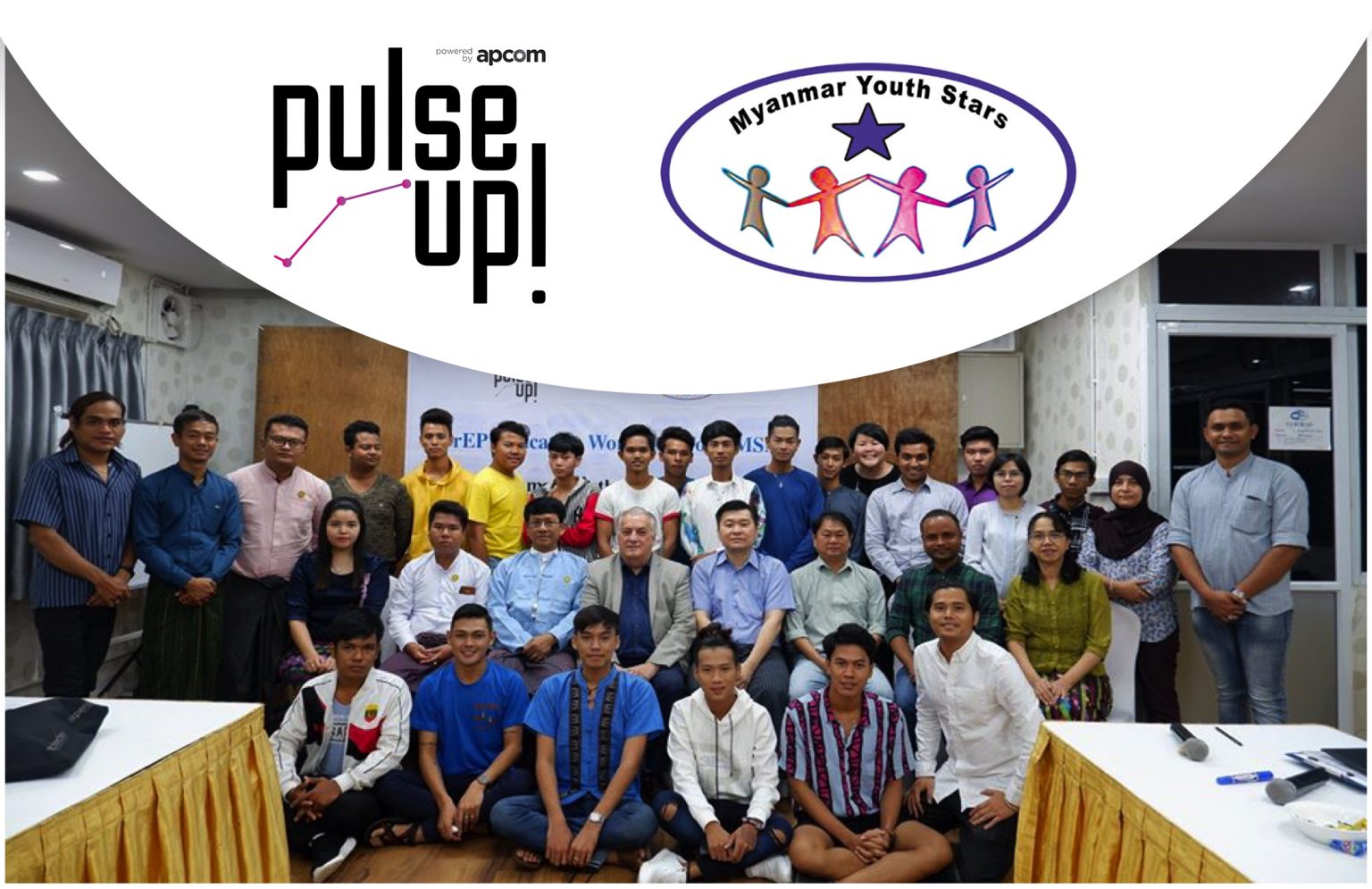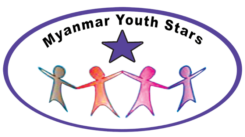
- MYSN Admin
- Apr 18, 2020
- Project
- 0 Comments
The PULSE Up! is a project which aims to gather epidemiological and behavioral data of young men who have sex with men (YMSM) through an online survey. This project builds the capacity of community organizations to facilitate survey roll-out, and conduct evidence-based advocacy with stakeholders to address YMSM needs. The data collected from this project will contribute to strengthening the HIV intervention programme and to end the epidemic among YMSM in the country.
Our partner, Myanmar Youth Stars (MYS) is a network representing young key affected populations (YKP) in Myanmar is sharing their main activities of the project which recently ended in 2020.
PULSE Up! started in 2019, the overall objective of this project ties in with the country’s National Strategic Plan by lobbying and advocating with the Government to contribute to designing an HIV intervention programme to end the epidemic among MSM in the country and fulfill international targets, and providing information to the new Strategic Plan as the current one will end this year.

PrEP educational workshop
Although Myanmar has included PrEP in their National Strategic Plan on HIV and AIDS, currently, Myanmar has no PrEP programs in place. APCOM did a regional consultation on PrEPARING Asia: A new direction for HIV prevention among MSM in Asia in 2015 with representatives from Myanmar, and a 2016 initial assessment testing the acceptability of PrEP in Myanmar found that 39% of men would be willing to use it—though the cost of the drug would be a potential barrier. The report also suggested that because sex between men is illegal in Myanmar, it is unlikely that PrEP would be accessed through government systems. It would have to be administered in a safer social environment by NGOs or community-led organisations. Led by MYS with participations from 22 young MSM and external stakeholders:
- Dr. Tin Muang Zaw – Regional Officer at NAP,
- Oussama Tawil – Country Director at UNAIDS,
- Joselyn Pang – Policy and Strategy Adviser at UNAIDS,
- Dr. Hla Htay – Senior Technical Manager at Burnet Institute,
- Dr. Myo Kyaw Lwin – Community Senior Advisor at UNAIDS,
- Dr. Hein Ko Ko and Ko Than Naing OO (PSI officials).
The workshop contributed to increasing knowledge about PrEP among participants, and also it assisted them in developing a workplan to promote PrEP uptake among young MSM in the country. Furthermore, it highlighted that PrEP availability is currently limited, and significant work requires to make PrEP widely available and accessible in Myanmar.

HIV prevention ambassador training
This two-day meeting gathered 20 community members from Yangon city. Overall, this training had enhanced participants’ knowledge and skills on HIV prevention activities. In particular, it assisted participants with;
- current epidemiological scenario in the country,
- HIV/ AIDS prevention methods
- PrEP availability and accessibility,
- Challenges of communities to accessing health services.
Furthermore, it assisted ambassadors in developing an individual roadmap to disseminate gained knowledge/information to their peers and community members.
Closing the data gap on young MSM in Myanmar
MYS rolled out the online survey, and had collected epidemiological and behavioral data of young MSM. A total of 834 respondents answered this survey. From this research activity, MYS produced a report and shared with communities and key stakeholders, the data collected from this survey will contribute to strengthening HIV intervention programmes for young MSM. In addition, it developed communication materials which highlights key issues or challenges of young MSM
This study highlighted that one-fourth of respondents did not receive HIV information and services and most of them never tested for HIV. Several other factors contribute to low HIV testing which includes; stigma and discrimination inside and outside the health care settings, low awareness on modes of transmission, breach of confidentiality. Therefore, it indicated that there need to create enabling environment by service providers especially for YMSM to access HIV prevention services at both public and private sectors.
